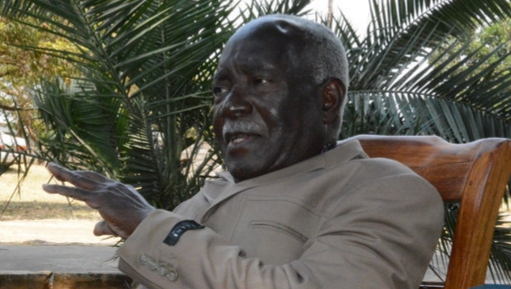Grey Zulu, born in 1925 and passing in 2012, was a renowned Zambian freedom fighter and politician whose contributions were pivotal in Zambia’s struggle for independence. His life and career left a lasting impact on Zambian politics and history. Here are 20 key aspects of his remarkable journey.
- Early Life: Grey Zulu was born on October 3, 1925, in the then-Northern Rhodesia, now Zambia. His early experiences shaped his commitment to the fight for independence.
- Education: Zulu attended local schools and later studied at the University of Makerere in Uganda, where he was exposed to broader political ideas and activism.
- Political Awakening: His political awareness grew during his time in Uganda, where he became involved in anti-colonial activities and learned about independence movements across Africa.
- Founding Member of UNIP: Zulu was a founding member of the United National Independence Party (UNIP), which played a crucial role in Zambia’s struggle for independence from British colonial rule.
- Role in Independence Movement: As a key figure in UNIP, Zulu was actively involved in organizing protests and rallies that were central to the independence movement.
- Imprisonment: His activism led to multiple arrests and imprisonments by the colonial government, which viewed his efforts as a threat to their control.
- Ministerial Role: After Zambia gained independence in 1964, Zulu was appointed as the Minister of Home Affairs, where he contributed to the establishment of the new nation’s administrative structure.
- Advocate for Civil Rights: In his ministerial role, Zulu was a strong advocate for civil rights and the promotion of social justice within Zambia.
- Political Challenges: His tenure was marked by significant challenges, including navigating political differences within UNIP and dealing with the complexities of leading a newly independent nation.
- Support for Indigenous Rights: Zulu was known for his commitment to advancing the rights and welfare of indigenous Zambians, particularly in rural areas.
- Influence on Zambian Politics: His leadership and activism had a profound influence on Zambian politics, shaping policies and approaches to governance in the early years of independence.
- Contribution to Education: Zulu was a proponent of education reform, advocating for increased access to education and the development of educational infrastructure in Zambia.
- Post-Independence Roles: After serving as Minister, Zulu continued to be involved in politics and public service, contributing to various national and regional initiatives.
- Community Leadership: Beyond his political career, Zulu played a significant role in community development, focusing on improving living conditions and fostering local leadership.
- Legacy in Zambia: His legacy is remembered for his steadfast commitment to Zambia’s independence and his efforts to build a strong, self-reliant nation.
- Recognition and Awards: Zulu received numerous accolades and honors for his contributions to Zambia’s independence and his role in shaping the nation’s political landscape.
- Philanthropy: In addition to his political work, Zulu was involved in philanthropic activities, supporting various causes related to health, education, and community development.
- Family Life: Grey Zulu was married and had a family, who supported him throughout his career and played a role in his personal and professional life.
- Challenges and Controversies: Like many freedom fighters, Zulu faced controversies and challenges, including political disagreements and the complexities of post-independence governance.
- Enduring Influence: Even after his death on July 3, 2012, Zulu’s impact continues to be felt in Zambia, where he is remembered as a key figure in the fight for independence and the development of the nation.
In conclusion, Grey Zulu’s life and career reflect a profound dedication to Zambia’s independence and development. As a freedom fighter and minister, he played a crucial role in shaping the nation’s path from colonial rule to self-determination. His legacy endures through his contributions to politics, community development, and the enduring spirit of Zambian independence.






